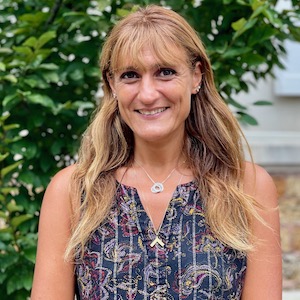
An engineer from the École Nationale Supérieure des Arts et Métiers, Zita Kasparian is a graduate of IFP School's Développement et exploitation des gisements program (Class of 2002).
Back at IFP School since mid-August, she is in charge of the Petroleum Engineering and Project Development (PEPD) program, replacing Antoine Couturier who will be retiring at the end of the year.
1. Could you tell us a little about your career path?
I spent most of my career on the service side of the upstream oil industry. Fresh out of IFP School, I joined Schlumberger, where I spent over 15 years, starting as a Field Engineer. I then held positions in Marketing, Reservoir Engineering and Training & Development. These years at Schlumberger allowed me to gain a wide range of field and operational experience, as well as solid skills in training.
2. What are your new responsibilities?
I supervise the PEPD students who started on September 4, with the aim of helping them acquire the skills and knowledge they need for their future careers.
My mission is also to ensure that the quality of the program is maintained by developing and adapting the teaching content to ensure that the professional skills of our students are in line with the current needs and expectations of the industry.
3. Twenty-one years have passed since you graduated from IFP School. How does it feel to be back on the Rueil-Malmaison campus? How has the School changed?
It's a real pleasure to be back at IFP School!
I had the chance to follow a very dynamic and rich program, with a good balance between experiences in the field and theoretical courses. In our class, we had students of many different nationalities, with varied backgrounds and professional experiences, which was very enriching. In the years that followed, I was able to put to good use what I had learnt at the School.
I find the same caring, motivated and enthusiastic spirit in the team today, and am boosted by the emulation we have with the IFPEN, Beicip-Franlab and others who are nearby.
The most striking changes are the new technologies in place. We didn't have a Learning Management System and the courses were much more conventional. I'm impressed (but not surprised 😊 ) by the School's obvious willingness to adapt and evolve to meet the new challenges of our industry, but also to use new teaching methods— with the support of Lab e-nov™.
For me, the School has not "changed", it has stayed true to its values, but it has "evolved" and continues to do so.
4. What do you see as the main challenges for the exploitation and use of the subsurface in 2023?
Energy has always been at the heart of our concerns. We've always had to find a source of energy and optimize its yield. However, in the past, a source wasn't exhausted until a new, more efficient one was found. Today, the challenge is different because we don't yet have a new radical solution for the future.
In 2023, we need to work on all fronts: continue to use fossil fuels responsibly, optimize more recent solutions such as Hydrogen and Geothermal energy, and develop new applications such as Gas Storage and CO2 sequestration.
I think that one of the biggest changes in all subsurface uses, extraction as well as storage, is the fact that today we must absolutely take into account the sustainable aspects of our activities and their impact on the planet.
5. Any message to encourage students to join IFP School's PEPD program?
My opinion is probably not totally impartial!
For me, the strength of the PEPD program lies in its uniqueness in training professionals capable of considering a reservoir in its entirety, since they are trained in reservoir, drilling and production. Students who follow this program can therefore access all these disciplines and occupy extremely varied positions.
For me, the attractiveness of the PEPD program is also due to the fact that the courses draw on the School's expertise in fundamental subsurface fields to develop new skills. With course contents being regularly updated and tailored for the Energy Transition, we train our students for new job opportunities that will be increasingly important in the future.
Interview conducted by Meyling Siu